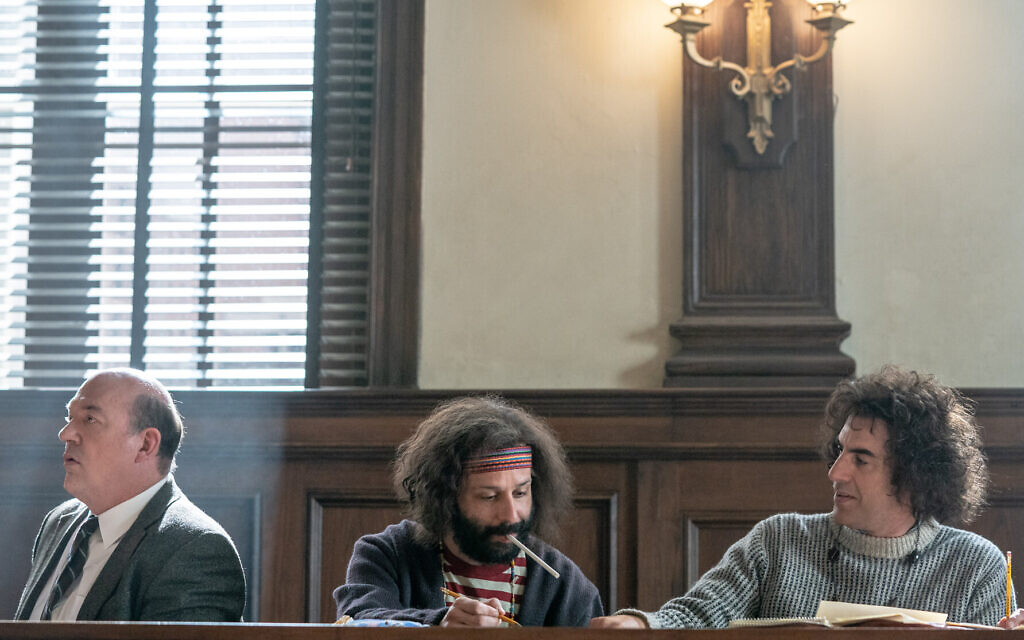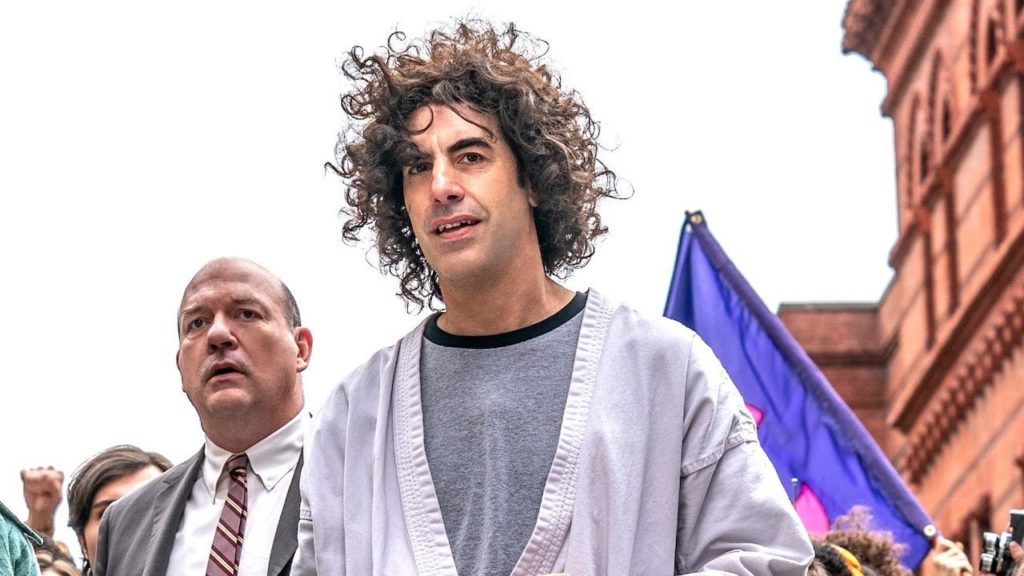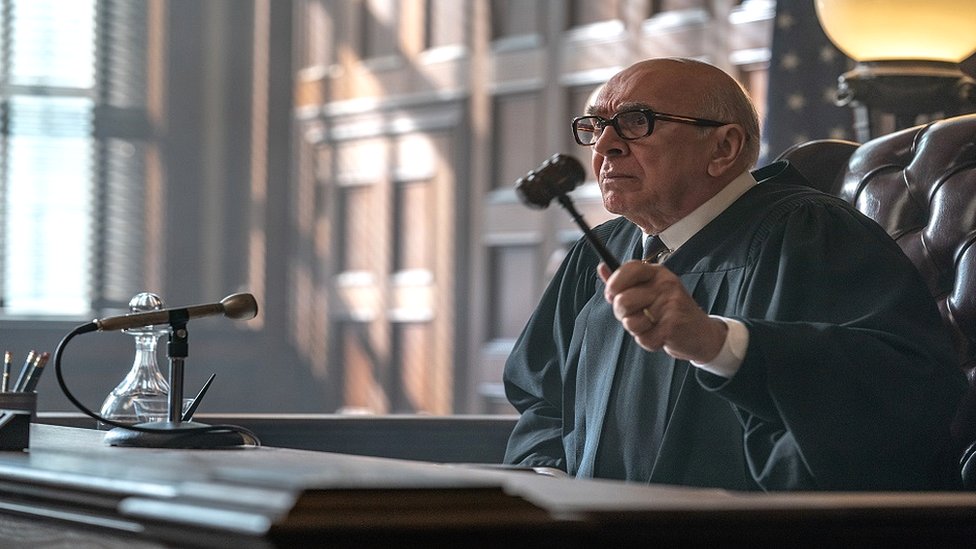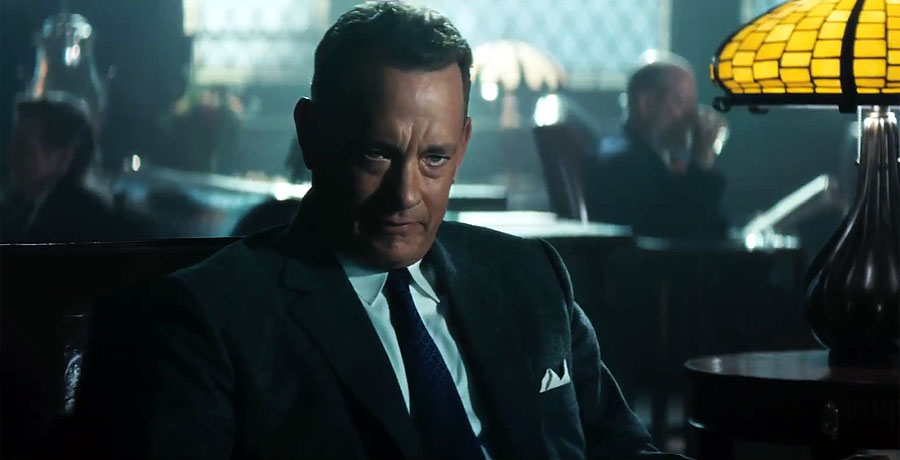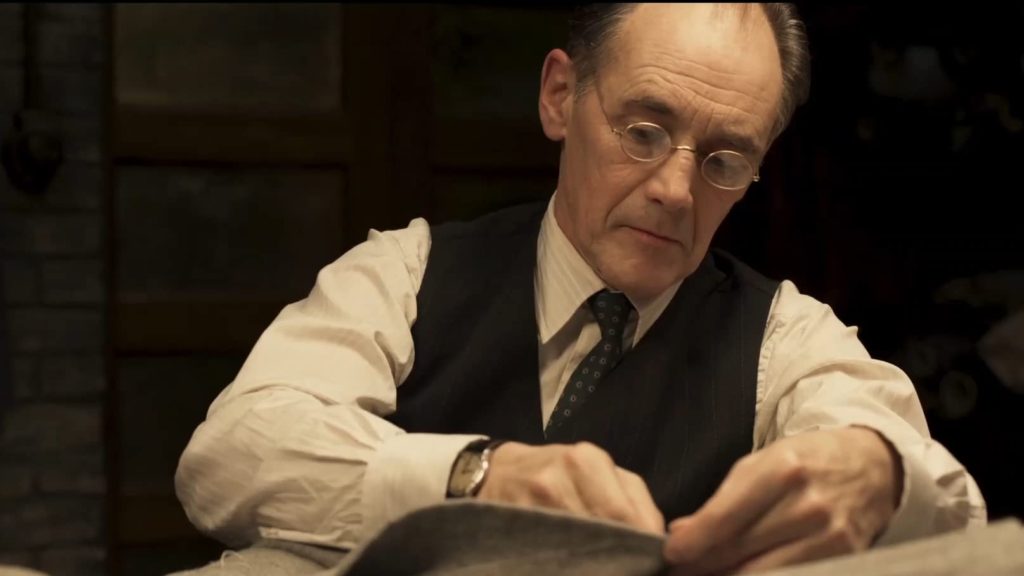
The Outfit is a satisfying period crime thriller with some big surprises. We’re in 1956 Chicago, and the accomplished actor Mark Rylance plays a very proper British maker of bespoke men’s suits, who allows local gangsters to have a secret drop box in the back of his modest shop. He and his assistant (Zoey Deutch), a young woman from the neighborhood, ask no questions.
Astonishingly polite, he does insist that everyone knows that he has been a Savile Row cutter, the more skilled artisan who cuts the fabric for men’s suits, not a tailor, who sews on the buttons.
The gangsters who own the drop box, however, come under a triple threat – the FBI, a competing mob and an inside rat. There’s an incriminating audiotape out there somewhere, which becomes the Macguffin in this story. Circumstances converge to trap our hero and his young assistant in the shop, where murderous gangsters are certain to do them in.
But, no one is just what they seem to be, and major plot twists tumble forth.
This is the directing debut for co-writer Graham Moore, who won a screenwriting Oscar for The Imitation Game, which starred Benedict Cumberbatch as mathematical genius Kenneth Turing. This time, Moore sets the entire film, every single shot, inside the same interior location; that makes for economic filmmaking, and the claustrophobia heightens the tension.
Mark Rylance is perfect as the very contained and ever civil craftsman plunged. into a desperate situation. Rylance, one of Britain’s seemingly endless stream of superb actors, came to broad attention (and to mine) in 2015 with the Thomas Cromwell historical series Wolf Hall and Bridge of Spies wth Tom Hanks. Since then, he’s starred in Dunkirk, The Trial of the Chicago 7 and Don’t Look Up.
Zoey Deutch is likewise excellent as the saucy shopgirl with her own secrets. She was the best thing in the raucous comedy Zombieland: Double Tap, in which she practically reinvents the Dumb Blonde.
The rest of the cast is good, too. Simon Russell Beale, known for playing erudite Englishmen, gets to play a mid-century Chicago hood.
Don’t confuse this film with the 1974 neo-noir The Outfit with Robert Duvall, Linda Black and Joe Don Baker (which is also good). The 2022 The Outfit is streaming on Amazon, AppleTV, Vudu, YouTube and redbox.

